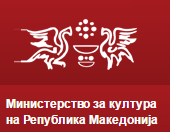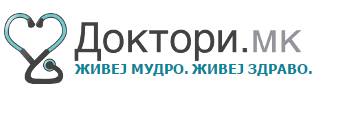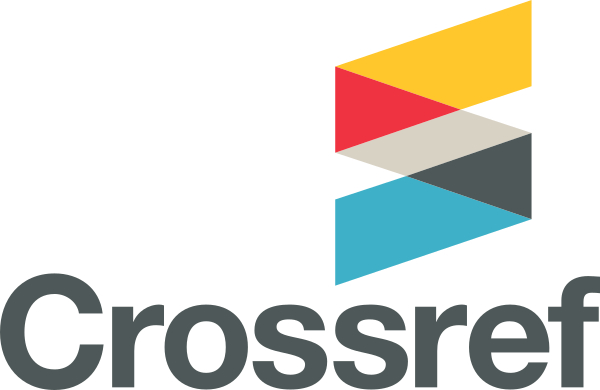JSER Policies
JSER Online
JSER Data
Frequency: quarterly
ISSN: 1409-6099 (Print)
ISSN: 1857-663X (Online)
Authors Info
- Read: 13861
|
РОДИТЕЛИ НА ДЕЦА СО ПРЕЧКИ ВО РАЗВОЈОТ: СТРЕС И ПОДДРШКА
Наташа ЧИЧЕВСКА-ЈОВАНОВА Даниела ДИМИТРОВА-РАДОЈИЧИЌ
Институт за дефектологија Филозофски факултет Скопје, Македонија
|
|
PARENTS OF CHILDREN WITH DEVELOPMENTAL DISABILITIES: STRESS AND SUPPORT
Natasha CHICHEVSKA JOVANOVA Daniela DIMITROVA RADOJICHIKJ
Faculty of Philosophy
|
||
|
Примено: 05.12.2012 Прифатено: 11.02.2013 UDK: 364-787.3-053.52:159.922.76-056.34
|
|
Recived: 05.12.2012 Accepted: 11.02.2013 Original Article |
||
|
|
|
|
||
|
Резиме |
|
Abstract |
||
|
|
|
|
||
|
Во моментот кога дознаваат дека нивното дете е со пречки во развојот, реакциите на родителите се исклучително индивидуални. На многу родители им се потребни месеци, а на некои и години за да се соочат со фактот дека нивното дете има пречки во развоjот. Оваа настаната состојба и криза тешко може да се спречи, но со добра професионална помош и поддршка може полесно да се надмине. Целта на ова истражување е да се испита нивото на стрес што го доживуваат родителите на децата со пречки во развојот, на поддршката што ја добиваат од семејството и локалната заедница. Анкетирани се 31 родител на деца со интелектуална попреченост, церебрална парализа и оштетен вид. Прашалникот се однесуваше на начинот на комуникација на професионалците со родителите, степенот на стрес што го доживеале поради пречките на нивното дете и поддршката од потесното, поширокото семејство, пријателите и локалната заедница. За родителите најстресно е сознанието дека нивното дете има пречки во развојот. Најголема поддршка имаат од нивните партнери и родители. |
|
Parents’ reactions, in the moment when they find out that their child is with developmental disabilities, are absolutely individual. A lot of parents need months, while some of them need years to face the fact that their child is with developmental disabilities. The state and the crises that arise are very hard to be prevented, however they could be overcomed by a good professional help and support. The aim of this research is to examine the stress level that the parents of these children experience as well as the support that they receive by the family and the local community. Thirty one parents of children with intellectual disabilities, cerebral paralysis and visual impairment have been inquired. The questionnaire referred to the way of communication between professionals and parents, the stress level that they experienced because of their child and the support they received from their close family and other family members, their friends and the local community. For parents, the most stressful thing is the moment of finding out their child’s developmental disabilities. The biggest support they receive from their partners and parents. |
||
|
|
|
|
||
|
Citation: Chichevska Jovanova N, Dimitrova Radojichikj D. Parents of Children with Developmental Disabilities: Stress and Support. J Spec Educ Rehab 2013; 14(1-2):7-19. doi: 10.2478/v10215-011-0029-z |
||||
|
|
|
|
||
|
Клучни зборови: родителите на децата со пречки во развојот, стрес, помош и поддршка.
|
|
Key words: parents of children with developmental disabilities, stress, help and support |
||
|
|
|
|
||
Share Us
Journal metrics
-
 SNIP 0.059
SNIP 0.059 -
 IPP 0.07
IPP 0.07 -
 SJR 0.13
SJR 0.13 -
 h5-index 7
h5-index 7 -
 Google-based impact factor: 0.68
Google-based impact factor: 0.68
10 Most Read Articles
- PARENTAL ACCEPTANCE / REJECTION AND EMOTIONAL INTELLIGENCE AMONG ADOLESCENTS WITH AND WITHOUT DELINQUENT BEHAVIOR
- RELATIONSHIP BETWEEN LIFE BUILDING SKILLS AND SOCIAL ADJUSTMENT OF STUDENTS WITH HEARING IMPAIRMENT: IMPLICATIONS FOR COUNSELING
- EXPERIENCES FROM THE EDUCATIONAL SYSTEM – NARRATIVES OF PARENTS WITH CHILDREN WITH DISABILITIES IN CROATIA
- INOVATIONS IN THERAPY OF AUTISM
- AUTISM AND TUBEROUS SCLEROSIS
- DIAGNOSTIC AND TREATMENT OPTIONS IN AUTISTIC SPECTRUM DISORDERS – AN OVERVIEW
- THE DURATION AND PHASES OF QUALITATIVE RESEARCH
- REHABILITATION OF PERSONS WITH CEREBRAL PALSY
- DISORDERED ATTENTION AS NEUROPSYCHOLOGICAL COGNITIVE DISFUNCTION
- HYPERACTIVE CHILD`S DISTURBED ATTENTION AS THE MOST COMMON CAUSE FOR LIGHT FORMS OF MENTAL DEFICIENCY
















